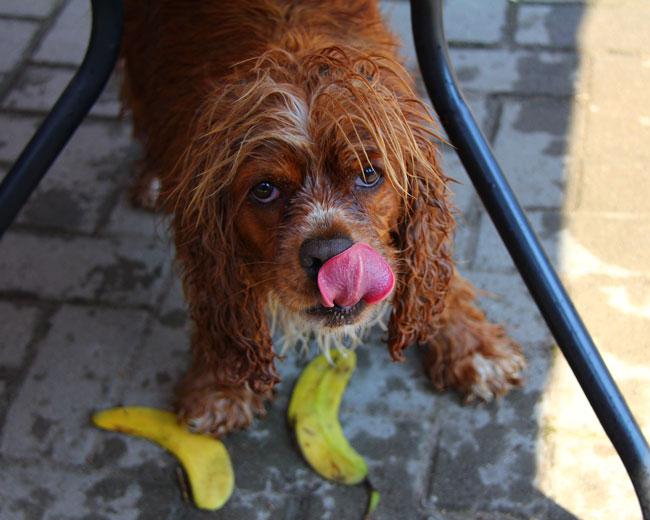
Pets and People Food
Monday, November 14, 2016
Giving our pets a treat or feeding them table scraps may seem harmless. In reality, people food can cause our pets problems including weight gain.
Do not feed table scraps to your dog or cat, especially if they are trying to lose weight. While it may seem like a snack to you, in most cases, it is an entire meal for your pet.
Hill’s offers these suggestions regarding feeding human treats and what it would mean to your pet in human terms:
- For a cat weighing up to 10 pounds, a single potato chip equals ½ hamburger with all the trimmings (lettuce, tomato, mayo and bun). A 1 ounce piece of cheddar cheese is like eating 2 ½ hamburgers. One cup of whole milk equals three hamburgers. Milk can cause weight gain and could upset your cat’s stomach.
- For a 20 pound dog, one little cookie equals an entire hamburger with all the trimmings. A 1 ounce piece of cheddar cheese for a dog is like eating 1 ½ hamburgers. One hot dog, cut into tiny pieces for training treats, equals 2 ½ hamburgers.
There are, however, some healthy human snacks that you can give your pets.
A banana, frozen or room temperature, chunks of frozen mango, fresh carrots and canned or frozen green beans can be used as treats.
Apples without the seeds can also be given as a treat.
A “pupsicle” made with plain Greek yogurt and a variety of fruits is also a great treat. You can use mango, banana, blueberry or all three. Note that it is important to use plain yogurt with no artificial sweeteners as those can be toxic to your pet.
For some other great snack ideas, take a look at this Spoil Your Pet handout.
If your veterinarian suggests using cheese or another human snack to administer medicine, please be aware of the extra calories and account for it in your dog or cat’s daily caloric intake. Always consult your veterinarian if you have any questions.
by Elisabeth J. Giedt, DVM
Veterinary Viewpoints is provided by the faculty of the OSU Veterinary Medical Hospital. Certified by the American Animal Hospital Association, the hospital is open to the public providing routine and specialized care for all species and 24-hour emergency care, 365 days a year.
